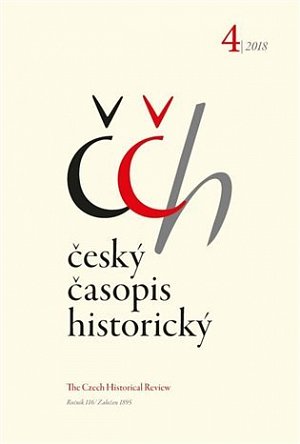| Nakladatel: |
Historický ústav AV ČR, v.v.i. |
| Kód |
D0437888 |
Z obsahu: DOUBEK Vratislav
Pojetí republikanismu před ustavením Československé republiky … s. 953
(The concept of republicanism before the establishment of the Czechoslovak Republic)
The study analyses some aspects of the dynamic development of the end of the First World War, which led to the declaration of an independent Czechoslovakia. In particular, it concentrates on the planting of the republican character of this state as not a matter-of-course, only a gradually adopted part of the political plan and the programme of foreign resistance, headed by the later president T. G. Masaryk. In connection with the controversy over the character of the future state during the world war the text also contemplates the earlier considerations of the Czech political thought of the 19th century on the issue of the republic and the republican form of government.
VLNAS Vít
Portréty T. G. M. od karikatury k ikoně … s. 967
(Portraits of TGM: From Caricature to Icon)
The genesis of the official image of Tomaš Garrigue Masaryk started immediately towards the end of 1918, on the day when the first Czechoslovak President returned to his homeland. The "hunger” for the statesman's portraits was principally based on the fact that the visual images of TGM were primarily fixed in Czech public awareness by spiteful caricatures from the period of the Manuscripts of Dvůr Kralove and Zelena Hora´s disputes and the so-called Hilsneriada. For a number of reasons, the depiction of TGM (especially in portrait painting) was the domain for more conservative artists, starting with Masaryk´s contemporaries from the National Theatre generation. Artists professing their allegiance to the avant garde movements, applied themselves to Masaryk´s portrait rather sporadically, although with striking results.
NĚMEČEK Jan
Hořký epilog Mnichova 1938 … s. 990
(The bitter epilogue of Munich 1938)
Nazi Germany consciously and consistently sought to absorb Czechoslovakia. The instrument of breaking the Czechoslovak state became the German national minority headed by the dominating Sudeten-German party, working in the intentions of Hitler. Nazi diplomacy in 1938 set up the problem of the German national minority as an international one and launched a policy of direct coercion thanks to the appeasement of the Western powers. Following Berlin's direction, it culminated in the adoption of the Munich Agreement of the Four Great Powers, Germany, Italy, Great Britain and France, and the truncation of the Czechoslovak state as the first step towards its destruction. The other was the definitive liquidation of the Czecho-Slovakia in March 1939.
ČTVRTNÍK Mikuláš
Historické prameny v utajovaném režimu … s. 1012
(Historical Sources under the Regime of Security Classification)
Records classified under the regime of security classification at its very origins represent an important part of future historical resource materials. Their information contents and evidential value in terms of quality are in many cases over and above the standard even for the historical science. For this reason, the historical science should pursue most diligently the fortunes of records under the regime of classification, including currently emerging documents. The phenomenon of classified records and access to them is, however, crucially relevant for the civic society and, in general, for the maintenance of fundamental democratic orders. In the Czech Republic there has not practically been held any discussion about the institution of classified documents. How do the secret services, for example, handle their records? Are they destroyed willfully? Are these records kept classified for a long time and unnecessarily? The Czech legal system does not exert any real pressure to have the materials, which were once classified, released. Does this state of affairs represent a potential threat to a democratic and free society? The follow
| Způsob dopravy |
Cena |

|
Osobní odběr zásilkovna
Více než 200 poboček po ČR |
69 Kč*
|

|
Balík do ruky |
79 Kč*
|

|
Balík na poštu |
79 Kč*
|

|
PPL v České Republice |
95 Kč*
|

|
PPL na Slovensku |
199 Kč*
|
* K objednávce bude připočteno balné ve výši 10 Kč, cena za dobírku není zahrnuta v ceně.
Uvedené ceny jsou včetně DPH |
| Způsob platby |
Cena |

|
Hotově na pobočce zásilkovna |
39 Kč
|

|
Bankovním převodem předem |
ZDARMA
|

|
Dobírka |
39 Kč
|


